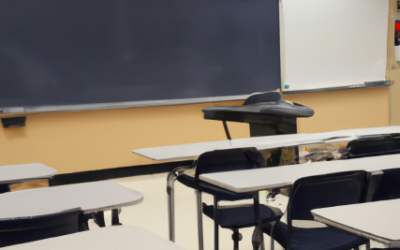There was a time when parents could scratch out a bit of insight as to how Manitoba students were faring in school. Then the NDP tossed out the standardized exams when it defeated the Filmon government in 1999. Then the Doer administration, which adopted instead assessments of Grade 3 pupils, decided even the data of that program’s findings should not be published.
Finally, school boards would individually release average marks scored on Grade 12 provincial exams, school by school. No more, though. On Tuesday, school boards refused to release the 2008/2009 average marks on the provincial exams; the Winnipeg School Division said it stopped doing this on the direction of the province some time ago.
The NDP agenda to bleach any semblance of accountability from the education system is complete. Now parents get only a report card about their child’s performance, which says nothing about the performances of the teacher, the school, the division or the curriculum, set by the province.
A comparative report from the Frontier Centre for Public Policy/Atlantic Institute for Market Studies shows how out of step Manitoba is on the trend toward improved accountability by provincial education departments. Based on data that compare factors such as socioeconomic status of schools, student-teacher ratios, enrolment and on the progression of students through high school, their average marks in core subjects and performance on exams, they conclude that British Columbia has the most comprehensive reporting, publishing school-by-school comparisons. Alberta came a close second and Saskatchewan is working to catch up.
Manitoba Education refused to disclose results of its provincial assessments and of Grade 12 exams, conducted in math and English language arts. School boards, too, were resistant. Only the River East Transcona board released average marks of Grade 12 students in math and English.
The NDP has bent to the pressure of the teachers’ union in this regressive attitude toward accountability. Teachers fought the decision of the last Tory government to publish results by schools, insisting it would simply stigmatize schools in impoverished neighbourhoods, triggering an exodus by those with the resources to move their kids into more affluent schools.
The Manitoba Teachers’ Society could have seen the publication of school comparisons as useful to amass evidence that the schools with limited resources and extraordinary challenges deserved greater attention and, perhaps, funding from teachers, parents, the school board and the province. But clipping parents’ access to this data was an easy out.
Now, a parent who is told their child’s pre-calculus class has an average of 55 per cent has no way of discerning if this is because the teacher’s methods are inadequate, a previous teacher failed to lay down the basics, or if the curriculum is flawed. The lack of public data does not promote excellence, it merely allows systemic weaknesses to continue undetected.
Education Minister Nancy Allan says her government is uncomfortable with the idea of publishing comparative outcomes: "I like to think all of our schools are fantastic schools." Her bliss is unassailable. Her government has made it practically impossible for parents and taxpayers to prove otherwise.


